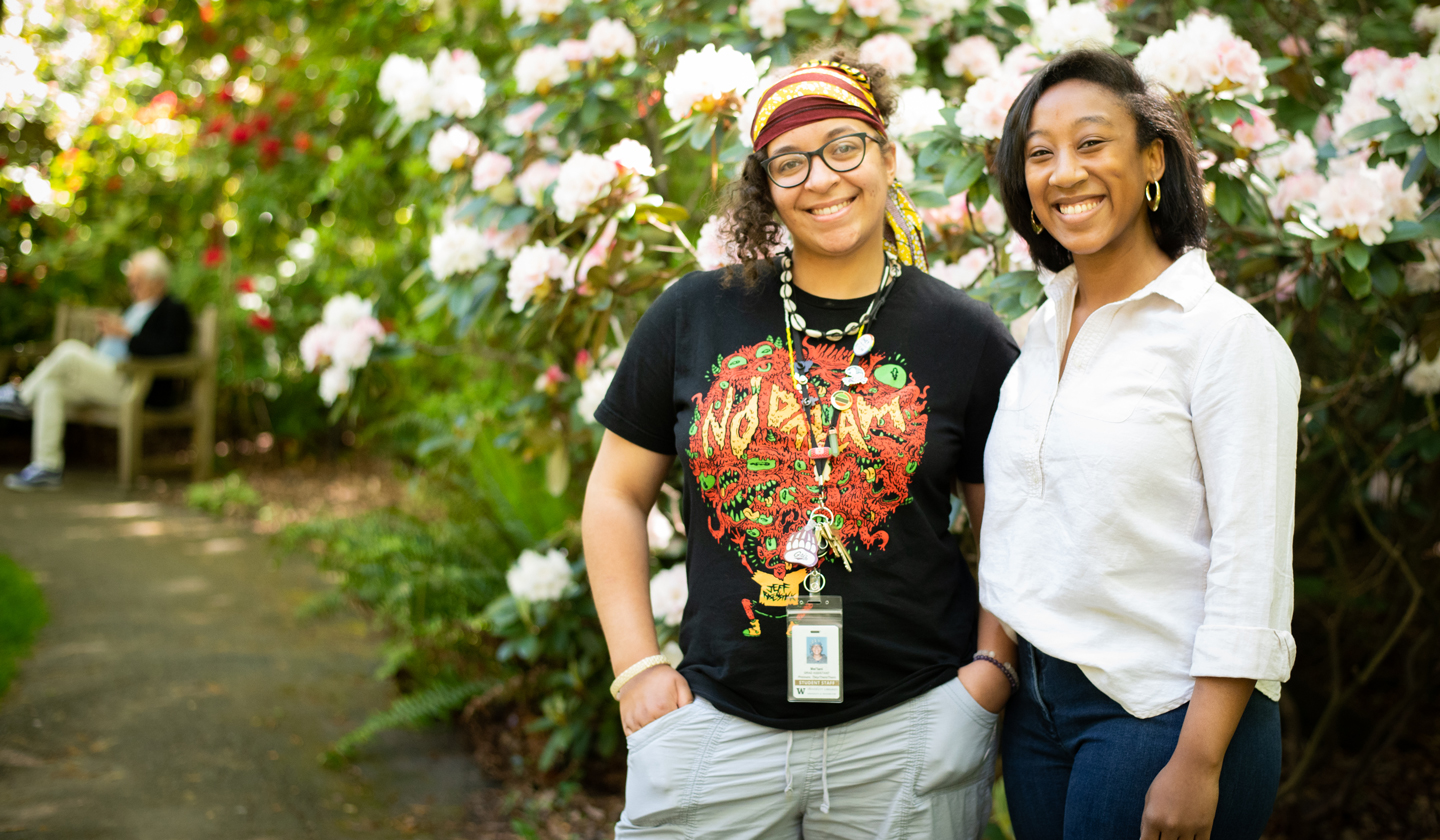“Education is liberation.”
Elmer Dixon, a Seattle Black Panther co-founder, shared these words of wisdom with Master of Library and Information Science students (pictured, left to right) Mei’lani Eyre and Dev Wilder as they worked to create a digital archive combating disinformation about the Black Panther Party.
The students partnered with Estelita’s Library, a social justice-focused community library and bookstore, to correct the media representation of the Black Panthers and preserve the legacy of everything the Black Panther Party did for the Seattle community. For their Capstone project, Eyre and Wilder structured their archive using Mukurtu, an Indigenous and cultural knowledge management platform intended to keep information safe.
“The principles of community care that we’ve learned through Indigenous knowledge tracks at the iSchool, like the course Indigenous Systems of Knowledge with Miranda Belarde-Lewis, have been really impactful in how we approach how information is shared,” said Eyre, the digital archivist for this project.
Eyre and Wilder interviewed Dixon and two readers of the Black Panthers newspaper, Jacqueline Brown and Glenda Tanner, to gather different perspectives. They aimed to understand the full story of who was a part of creating the Black Panthers newspaper and who benefited from it as an information source. Through these conversations and analyzing the newspapers, they came to see how much information was hidden and kept from the public in mainstream media.
“There are so many things that folks don’t really talk about. The Black Panthers really highlighted and documented through their newspaper some extreme, difficult moments for Black people in the U.S.,” said Eyre. “They also uplifted the organizations and community around them.”
Eyre and Wilder have different interests, with Eyre having a background in special collections and Wilder focusing on medical and health librarianship. However, both were drawn to this project by their shared desire to apply the skills they have learned in their MLIS classes to serve their communities.
“Growing up, we were not taught about Black figures, especially in-depth like this archive,” said Wilder, the metadata specialist. “So it’s our responsibility as people of color to understand more about our community, especially when we live in a system that won’t teach us.”
While creating a digital archive is no easy feat, the students expressed gratitude for the opportunity to experience on-ground work and the support provided by Estilita’s library and the iSchool.
Kaleb Germinaro, the project’s secondary advisor at Estilita’s, voiced great appreciation for Eyre and Wilder as well. “Working with Dev and Mei’lani has been really genuine and focused on community building,” he said. “They’re definitely pushing the bounds of what information science can and should look like while centering Black, brown and Indigenous communities, something the wider university and the information school should learn from.”
Once the archive is completed, it will expand information access, allowing people to join different groups online with various levels of access to obtain the information they seek rather than going to the library in-person.
“It has been interesting to look at the way we, as a Black community, receive information in a society where information was not designed to reach us and information was not designed to be for us,” said Wilder.
As part of a broader, collective goal of combining Black social justice with education, the Black Panthers Digital Archive is a source of hope against false narratives, speaking to the values of inclusivity and information transparency in the Black community.
“Being in community, learning from our predecessors, our elders, in some cases our ancestors, these lessons really help us in hard times,” said Eyre. “This is a project that’s going to outlast us and it should outlast us.”
